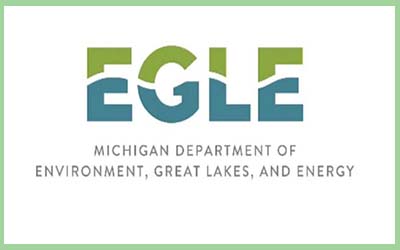
state’s first environmental justice conference May 18-20
|

|

FOR IMMEDIATE RELEASE
May 7, 2021
Contact: Lynn Sutfin, 517-241-2112
LANSING, Mich. – The Michigan Department of Health and Human Services (MDHHS) has revised its epidemic order for COVID-19 testing in long-term care facilities across the state to reflect current guidance from the Centers for Medicare and Medicaid Services.
Under changes to the COVID-19 testing order for skilled nursing facilities, homes for the aged and adult foster care facilities licensed to care for 13 or more individuals, fully vaccinated staff no longer must be routinely tested. This order is effective immediately.
“Getting the safe and effective COVID-19 vaccine is the most important thing you can do to protect yourself, your family and your community,” said MDHHS Director Elizabeth Hertel. “The increases we are seeing in Michiganders receiving their vaccine, including among long-term care patients and staff, is allowing us make this change to testing requirements in these facilities.”
Testing continues to be required under the following circumstances:
More than 289,000 doses of vaccine have been administered to long-term care patients and staff. All facilities have first dose clinics completed with 98% completing second dose clinics. Third clinics to vaccinate anyone from the second clinic that needs their second dose have been completed at 99.5% of these facilities. Facilities are responsible for requesting, obtaining and maintaining a record of vaccination status for all residents and staff members.
Information around this outbreak is changing rapidly. The latest information is available at Michigan.gov/Coronavirus and CDC.gov/Coronavirus. To learn more about the COVID-19 vaccine, visit Michigan.gov/COVIDVaccine.

FOR IMMEDIATE RELEASE
May 10, 2021
Contact: [email protected]
Michigan selected for $15M Code.org pilot program expanding AP Computer Science offerings
Investment builds on innovative partnership between MiSTEM Network, Code.org, Grand Valley State University and College Board to expand STEM education, grow talent for high-demand careers
LANSING, MICH – Michigan, a national leader in STEM education for K-12 students, will expand Advanced Placement Computer Science (AP CS) opportunities thanks to a $15 million Code.org pilot program launching in seven sta
“By investing in our students early on, we are taking another step toward cultivating a rewarding education and career pathway for our students, creating a strong talent pool for businesses, and putting Michigan on the path to economic success,” Lt. Governor Garlin Gilchrist II said. “We are thankful for Code.org for choosing Michigan as one of the first states in the nation to launch this expansive, inclusive computer science opportunity. We encourage educators and students to explore the rewarding opportunities this new AP Computer Science offering brings.”
This investment will leverage best practices of inclusive teaching that considers the cultural perspectives, interests and experiences of Black, Latino, Native American and other underrepresented student group
“Progress on solving our national need to give students access and opportunities to high-quality computer science courses depends on the dedication and leadership of local organizations like the MiSTEM network,” said Cameron Wilson, President of the Code.org Advocacy Coalition. “MiSTEM’s progress in expanding access to computer science over the last few years has made them a truly invaluable partner. They will continue to make a powerful difference in the lives of students who deserve the opportunity to learn a subject that’s transformational in their education, success and future.”
To date, this professional learning partnership has trained over 300 AP Computer Science teachers and launched over 300 new AP courses at no cost to Michigan schools. The results have been stunning – the number of students taking AP CS exams has increased more than 400% while maintaining the rate of students who earn college credit. During this time, more than 70% of Michigan students earned a score of 3 or higher on AP CSP Exams. This score qualifies those students to potentially earn college credit for their accomplishment.
The College Board has been awarding the AP Computer Science Female Diversity Awards since 2018 and 2/3 of the schools recognized from 2018 through 2020 in Michigan were a part of this partnership. Partnership schools have increased the number of African American and Latinx students taking the course and exam significantly.
“We applaud Michigan’s commitment to providing a more diverse set of students with computer science courses, which are fundamental for 21st century careers,” said Trevor Packer, head of the AP Program at the College Board. “We’re eager to see how the state’s efforts continue to close the equity gap in computer science education.”
Cody High School in Detroit Public Schools Community District recently received the Advanced Placement Computer Science Female Diversity Award from the College Board for having at least 50% or higher female exam rates on the AP CS Principles exam.
“I’m so glad that we have quality curriculum to rely on so that our students have an opportunity to learn about coding and computer science,” Carrie Russell, teacher at Cody High School, Detroit Public Schools Community District, said. Code.org has provided a curriculum that is already College Board approved so our district was able to offer Computer Science Principles as an AP course. Through Code.org, I have received training, continuing professional development, and support to deliver instruction to my students that allow them to succeed or excel in computer science.”
To learn more about the workshops for school districts to take part in this pilot, visit www.mi-code.org.
To learn more about the MiSTEM Network, and how business or organization can connect with their Regional MiSTEM Network Director to support Computer Science in their local community, visit www.michigan.

Press Release Updates total number of Michiganders vaccinated. FOR IMMEDIATE RELEASE: May 7, 2021 CONTACT: Lynn Sutfin, 517-241-2112, [email protected] MDHHS launches Michigan Vacc New tracker includes CDC data on Michiganders vaccinated in-state and in LANSING, Mich. – Today, the Michigan Department of Health and Human Services (MDHHS) is launching the Vacc to Normal Milestone Tracker to complement the Michigan COVID-19 Vaccine Dashboard. This Tracker includes vaccinations of Michiganders received both in-state and out-of-state, allowing the state to provide more comprehensive data on vaccination milestones as they are reached. “The Vacc to Normal Milestone Tracker provides the most complete estimate of the number of Michigan residents ages 16 and older who have received their first doses of COVID-19 vaccine,” said Dr. Joneigh Khaldun, chief medical executive and chief deputy for health. “The safe and effective vaccine is the most important tool we have to reduce the spread of COVID-19. By getting shots in their arms as soon as possible, Michiganders can protect themselves, their families and their communities and help end this pandemic as quickly as possible.” To date, 4,393,499 Michiganders age 16 and older have received their first dose of he safe and effective COVID-19 vaccine, 54% of the state’s residents. The tracker uses vaccination The Vacc to Normal Tracker also tracks the date when 55%, 60%, 65% and 70% of Michigan residents 16 years or older have received their first dose of vaccine and provides the date two weeks later when the next steps to normalcy will move forward. The Vacc to Normal plan will use four vaccination-based milestones:
The Michigan COVID-19 Vaccine Dashboard provides detailed Doses administered to Michigan residents by most health care providers in other states are not sent to MCIR at this time. CDC is developing an interstate data transfer system for sharing data on COVID-19 vaccine doses between states for their residents. Michigan has signed a Data Sharing Agreement with CDC and is working with other states to put technological connections in place for sharing information until the CDC data transfer system is developed. Michigan has had data sharing agreements with Wisconsin and North Dakota for all immunizations since before the COVID-19 vaccination campaign began. Michiganders who have been vaccinated in another state are urged to bring their vaccination card to their health care provider at their next appointment or to their local health department to have their immunization information updated in MCIR. Although MDHHS is now receiving CDC counts on first doses administered to Michigan residents, this data is aggregate and does not include information about county of residence, age, sex or other demographic information. Information around this outbreak is changing rapidly. The latest information is available at Michigan.gov/Coronavirus |

|
|
|
|